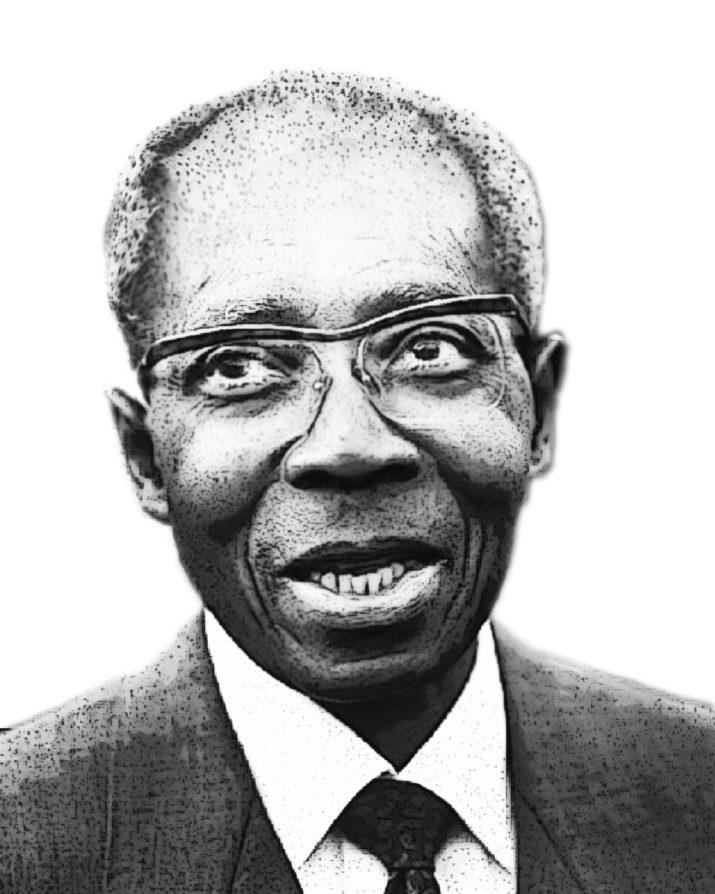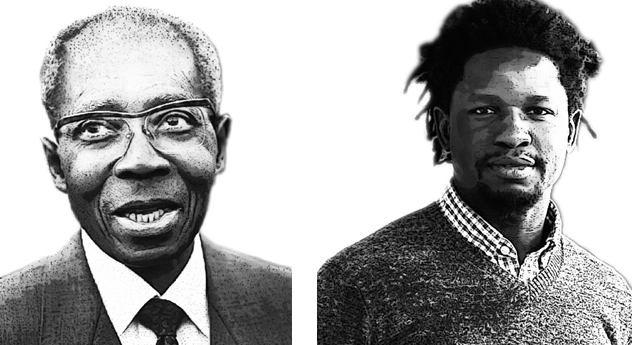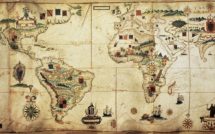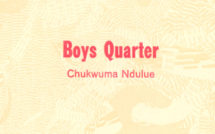

Translated from the French by Baba Badji.
This is part of our special feature, Beyond Eurafrica: Encounters in a Globalized World.
TO THE SENEGALESE RIFLEMEN WHO DIED FOR FRANCE
Here is the Sun
Which tightens the breasts of the virgins
Who makes the old men smile on the green benches
Who would awaken the dead under a maternal earth.
I hear the sound of cannon—is it from Irun?
They put flowers on tombs and warm the Unknown Soldier.
You my dark brothers, no one appoints you.
Five hundred thousand of your children are promised glory
of the future deaths, they thank them in advance, future
dark dead.
Die Schwarze Schande!
Listen to me, Senegalese Riflemen, in the solitude of
………..black earth and death
In your solitude without eyes without ears, more than
………..I in my dark skin at the depths of the Province,
Without even the warmth of your comrades lying close to
………..you, as in the trenches in
………..the village palavers long ago,
Listen to me, black skin Riflemen, well without
………..ears and eyes in your threefold chamber
………..at night.
We have not borrowed mourners, nor
………..tears from your former wives
………..—They only remember your
………..fury and prefer the stench of the living.
The mourners’ laments come too clear,
Too quickly drying up the cheeks of your wives, as
………..in the Fouta streams in the dry season,
The warmest tears too clear and too quickly
………..drunk from the corners of the forgetful lips.
We bring you, listen to us, we who epilate
………..your names in the months of your death,
We, in these days of fear without memory, we bring
………..you the friendship of your comrades
Ah! May I, one day, in a voice glowing like embers,
………..may I sing
The friendship of the comrades fervent as bowels
………..and delicate as entrails, strong as tendons.
Listen to us, Dead in the deep water
………..plains of the northern and the eastern fields.
Receive this red soil, under a summer sun this redden soil
………..blood of the white hosts
Receive the salute of your black comrades, Senegalese
………..Riflemen
DEATH FOR THE REPUBLIC!
…………………………………………………………….Tours, 1938
TO THE NEGRO-AMERICAN SOLDIERS
………………………………………………………………For Mercer Cook
I did not recognize you in prison under your
………..sad-colored uniform
I did not recognize you under the calabash helmet
………..without style
I did not recognize the whining sound of your
………..iron horses, who drink but do not eat.
And it is no longer the nobility of elephants, it is the
………..the barbaric weight of the prehistoric
………..monsters of the world.
Under your closed face, I did not recognize you.
I only touched the warmth of your brown hand,
………..I called myself “Afrika! ”
And I found once again the lost laughter, I hailed the ancient voices
………..and the roar of Congo waterfalls.
Brothers, I do not know whether you bombed the
………..cathedrals, the pride of Europe,
If you are the lightning of God’s hand that burned
………..Sodom and Gomorrah.
No, you are the messengers of his mercy, the
………..Spring after Winter.
To those who had forgotten how to laugh-only
………..smile obliquely
Who knew nothing but the savory flavor of
………..tears and the vexing stench of blood
You bring the Season of Peace and hope to
………..end of the delay.
And their night is filled with milky sweetness, the blue
………..fields of the sky are covered with flowers, silence sings
………..soothingly.
You bring them the sun. The air beats with whispers
………..liquids and crystalline chirping and beating
………..silky wings
The aerial cities are tepid with nests.
Through the streets joy streamed, the boys play with
………..their dreams
Men dance before of their machines and
………..surprised themselves singing.
Schoolgirls’s eyelids are rose petals, and
………..fruits ripen in the virgins’ breasts
And the women’s hips—Oh, sweetness—
………..grow generously heavy.
Black brothers, warriors whose mouths are flowers that
………..sing
—Oh! the delight to live after Winter—I salute you
………..like messengers of peace.
DESPAIR FOR A FREE VOLUNTEER
………..………..………..………..………..……“I don’t understand a thing, said the sergeant,
………..………..………..………..………..………..……a Senegalese—and a volunteer!”
He has been there for fifteen days, turning round, ruminating
………..the new Great Farce
And on the newest affront-his sweating forehead! –to his
………..sacrifice paid in false currency.
He did not even ask for fifty centimes
………..one cent
Only his posthumous identity as a man.
He was given the bondage garments he imagined
………..the candid martyr’s robe
O naive! naively naive! and the plumed helmet and boots
………..for his free and domesticated feet.
He leans over to the gaping courtyard and four rows
………..windows below him
He leans out, and the apocalyptic plain is lined up with
………..trenches, where the dead men rot like
………..sterile seeds
He leans over the high burial mounds of solitude.
And beyond it, the Sudanese plain has dried out the Wind
………..form the east and the Nordic masters of Time
And the beautiful shining black roads bordered by the
………..sands, nothing but sands taxes, taxes chores
………..whips.
And the only dew is spit from their inextinguishable thirst
………..to remember the green Atlantic meadows
For the engineers’ dams have not alleviated the thirst
………..of souls in polytechnic villages.
He gets rid of his collar-tie hides the sweat
………..of the shirt—, of a discreet jacket.
He leans over a second plain saturated with plumed helmets
………..and blood, on a second plain altered by love
………..like a friendly rain
And it is until the parallel fusion, the so fatal succession
………..of the plains and complaints silently.
On tiptoe he leans over, rises himself
………..to pierce his despair on the horizon.
He doesn’t see that the dead and the high
………..dead disguised the fields there that turn
………..green in the shade
Gold and constellated of stars, as if sprinkled by blood
………..From their feet and well-nourished fat corpses.
Can he see the lost paradise behind the horizon of
………..fabled time?
He leans over. Attracted by the open space and this vast
………..land emptied of hope, as bare trees after the bombardment.
Nothing but this stench, that empty boiling
………..rising to his head.
Sweet dizziness of death, oh! empty of everything
………..hope, of hollow suffering.
A slow balance rocks the body-what—what
………..a dancer’s grace in the elastic air! —and
The sudden fall, sweet dizziness!
O frail, very frail child, such a faithful traitor to your
genius!
ASSASSINATIONS
They lie there stretched out by the captive roads, along the
………..roads of disaster
The lean poplars, the statues of the dark gods
………..draped in their long gold coats
Senegalese prisoners miserably lying
………..on the French land.
In vain they cut your laughter, in vain the blacker the flower, the
………..blacker your flesh.
You are the flower of beauty among the first absence
………..nude flowers
Black flower blossom and its somber smile, diamond of a time
………..immemorial.
You are the mud and plasma of the world’s leafy
………..spring
From the primitive couple, you are the flesh of the womb, the
………..belly fertilizing milt
You are the sacred profusion of bright, blissful gardens
And the sovereign forest, victorious of fire and lightning
The vast song of your blood will defeat machines and canons
Your speech throbbing deceptions and lies
No hate in your soul, you are not hateful, no cunning
………..soul without cunning.
O Black Martyrs, immortal race, let me say the
………..words that forgive.
………..………..………..………..………..………..………..……………Front-Stalag 230.
Léopold Sédar Senghor is a Senegalese writer, born 1906, in Joal (Senegal), died December 20, 2001 in Verson, Normandie (France).
Baba Badji is currently a Chancellor’s Fellow and a third-year Ph.D. Candidate in Comparative Literature, with the Track for International Writers & a combined Graduate Certificate in Translation Studies at Washington University in St. Louis, Missouri. His research interests are situated in 20th C American, African, Caribbean, Francophone Studies, Poetics of Exile & Poetics of Blackness, Modernism, Postcolonial Studies. His first Chapbook, Owls of Senegal was a finalist for the 2016 Seattle Review judged by Claudia Rankine. His translation has appeared on The 2014 Pen World Voice Festival.
Published on March 1, 2018.




